Not sure about choosing a charger? Try our revamped Charger Finder!
Try our revamped Charger Finder!
- For Installations
- All our chargers come with a 1 year warranty
- Free Shipping
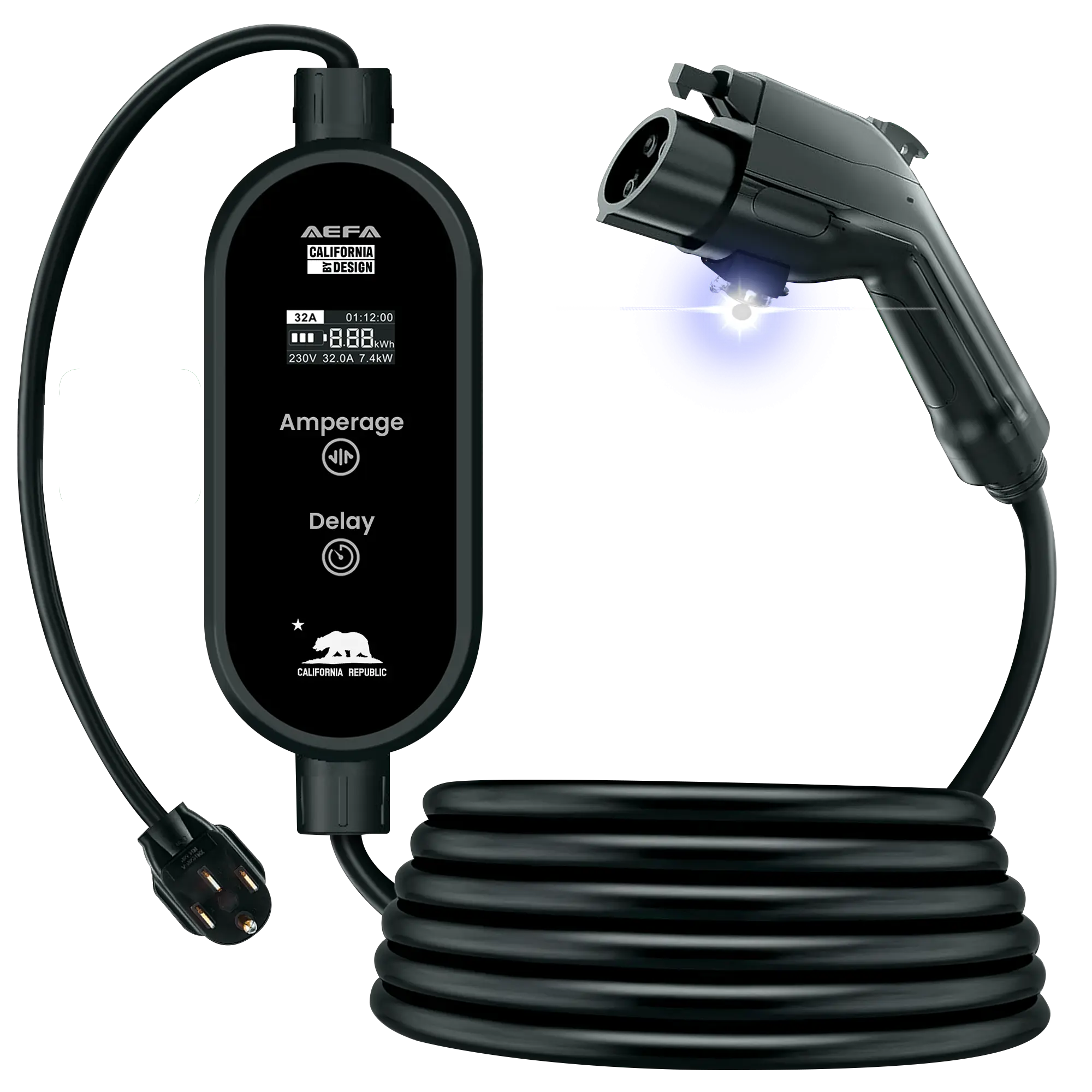

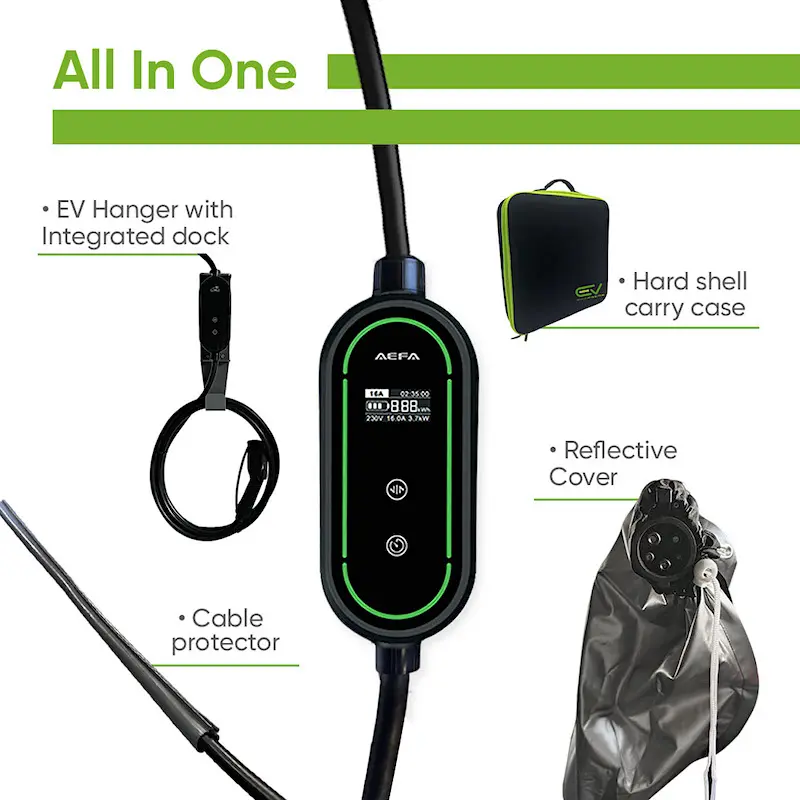
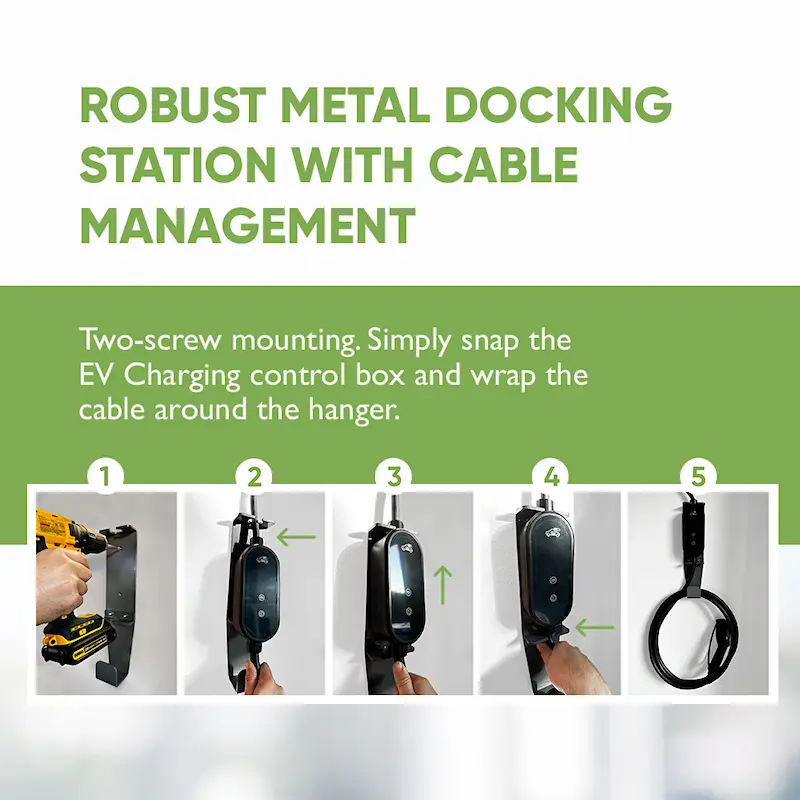
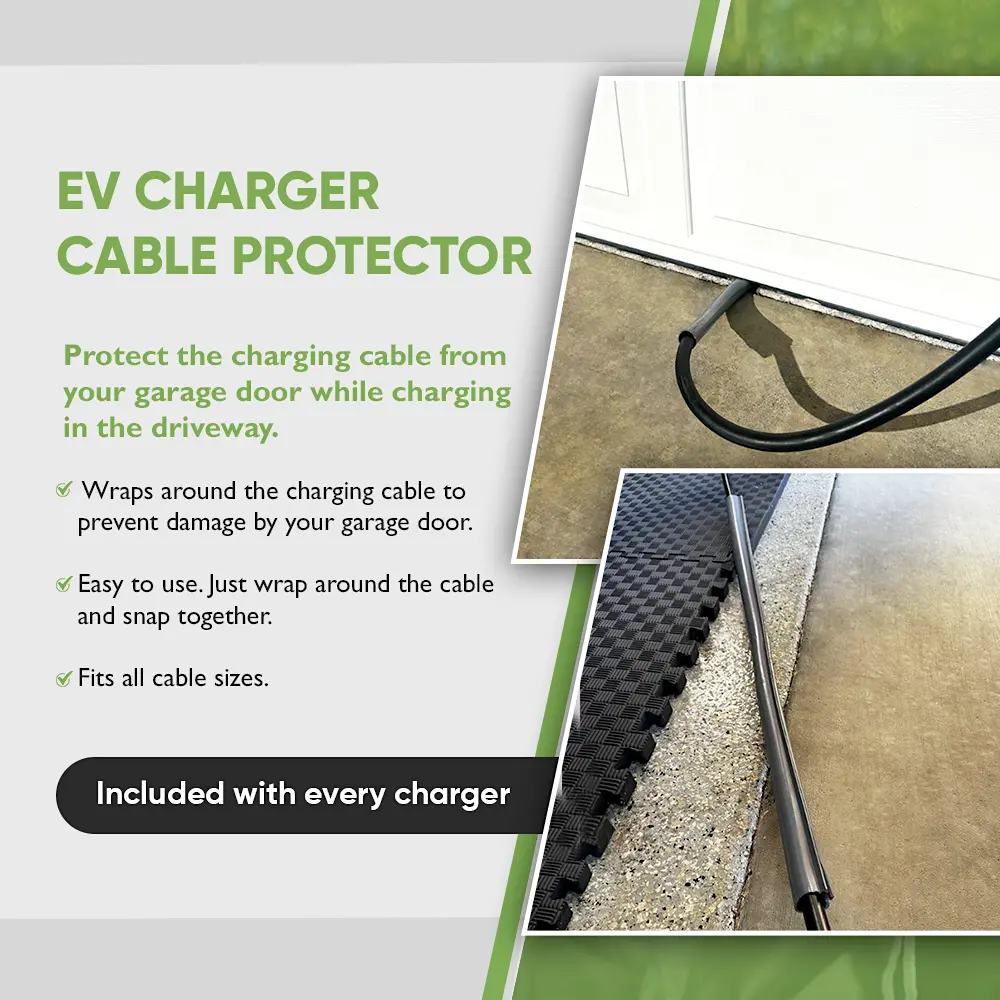
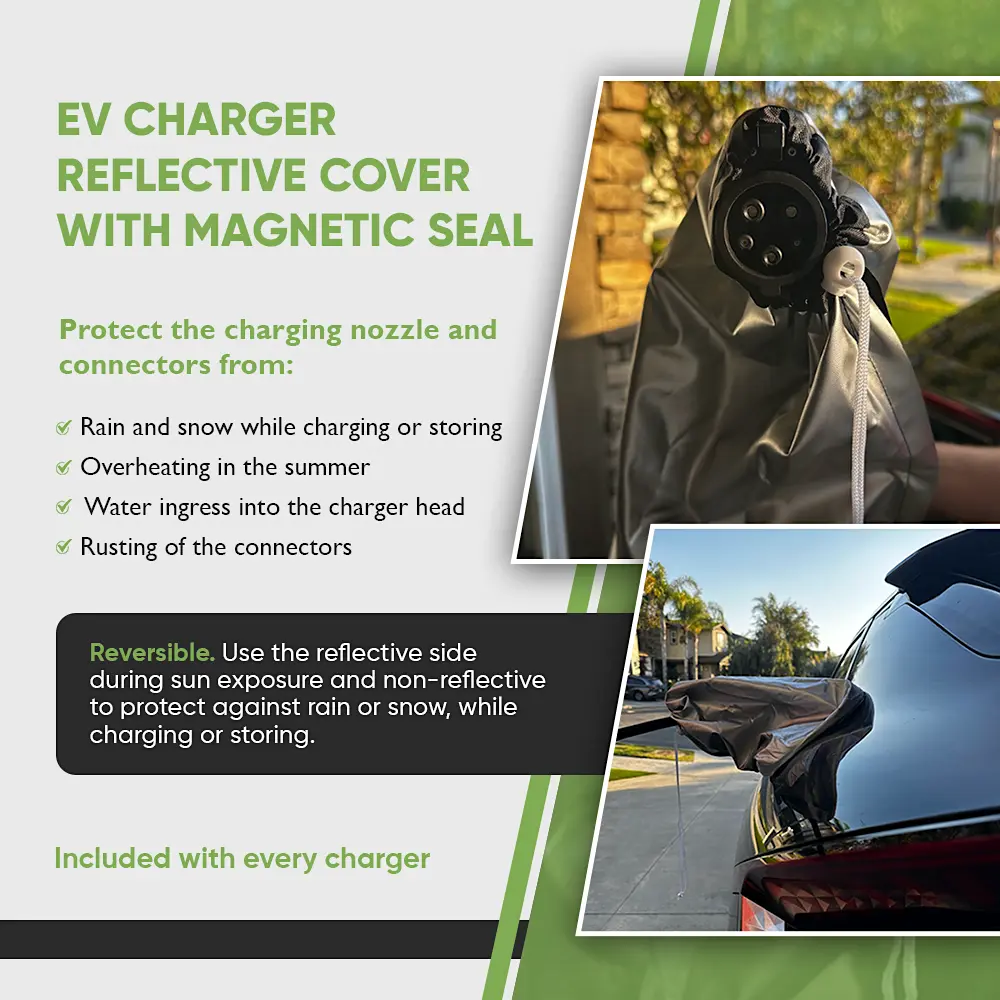
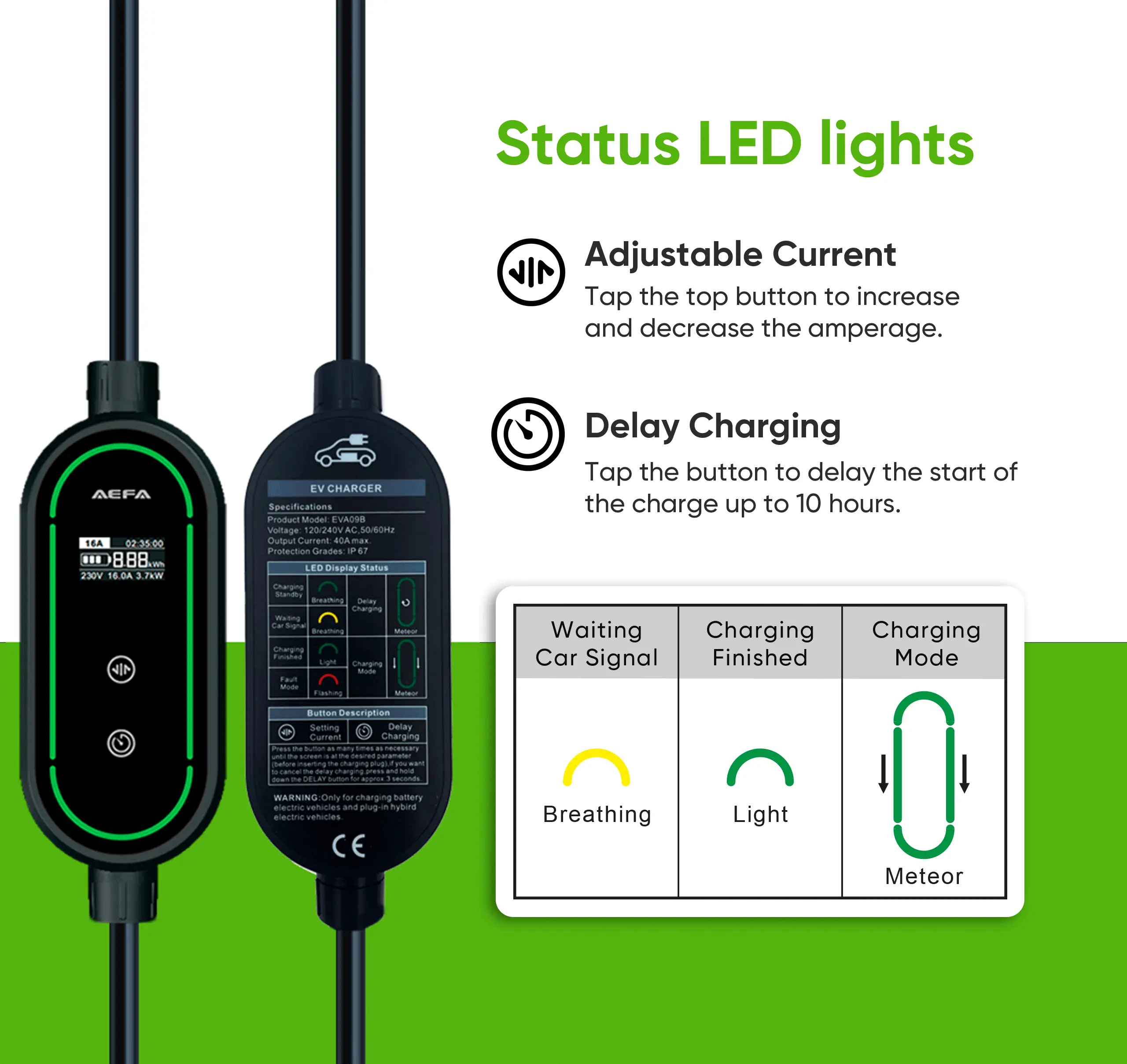
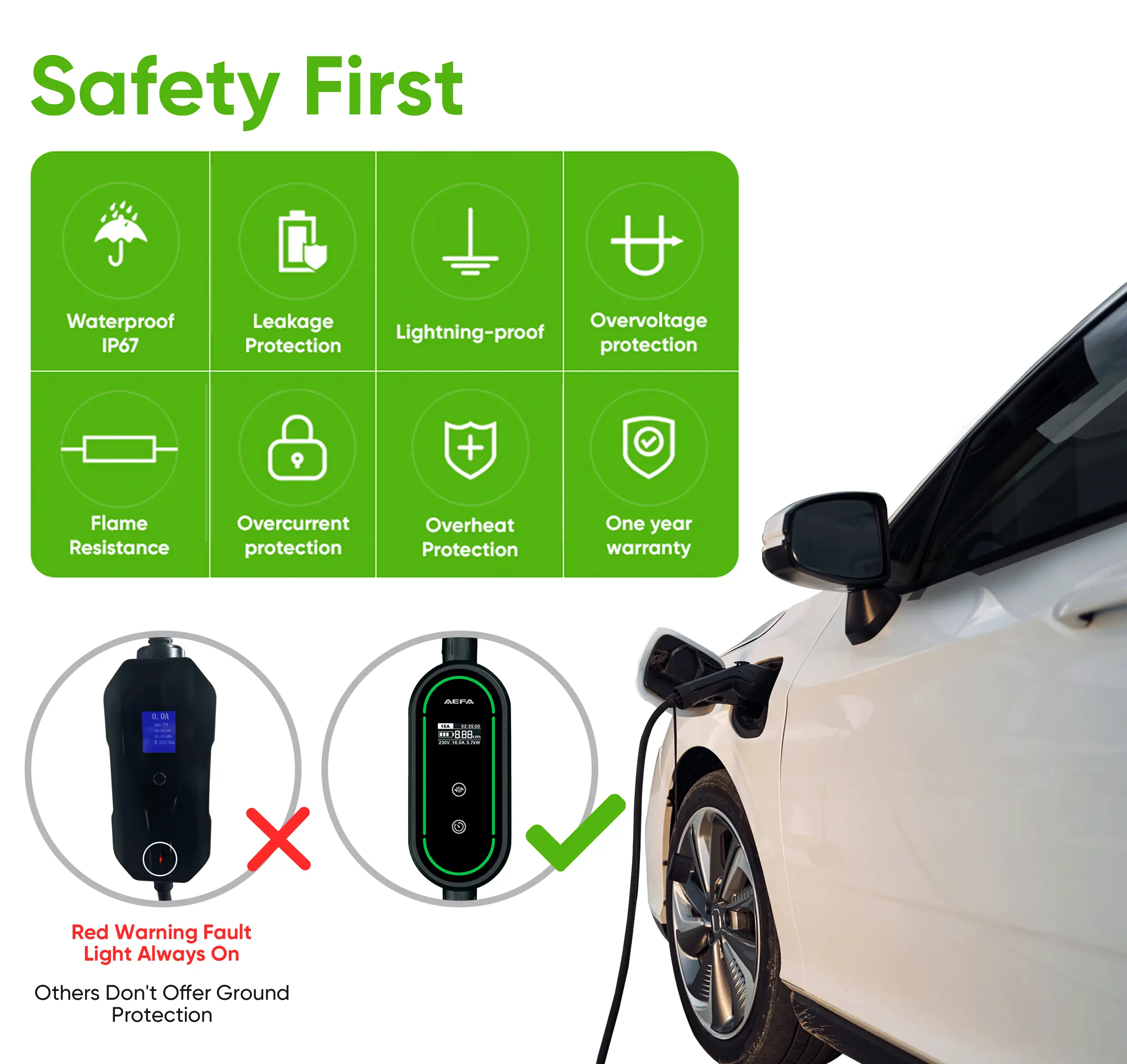
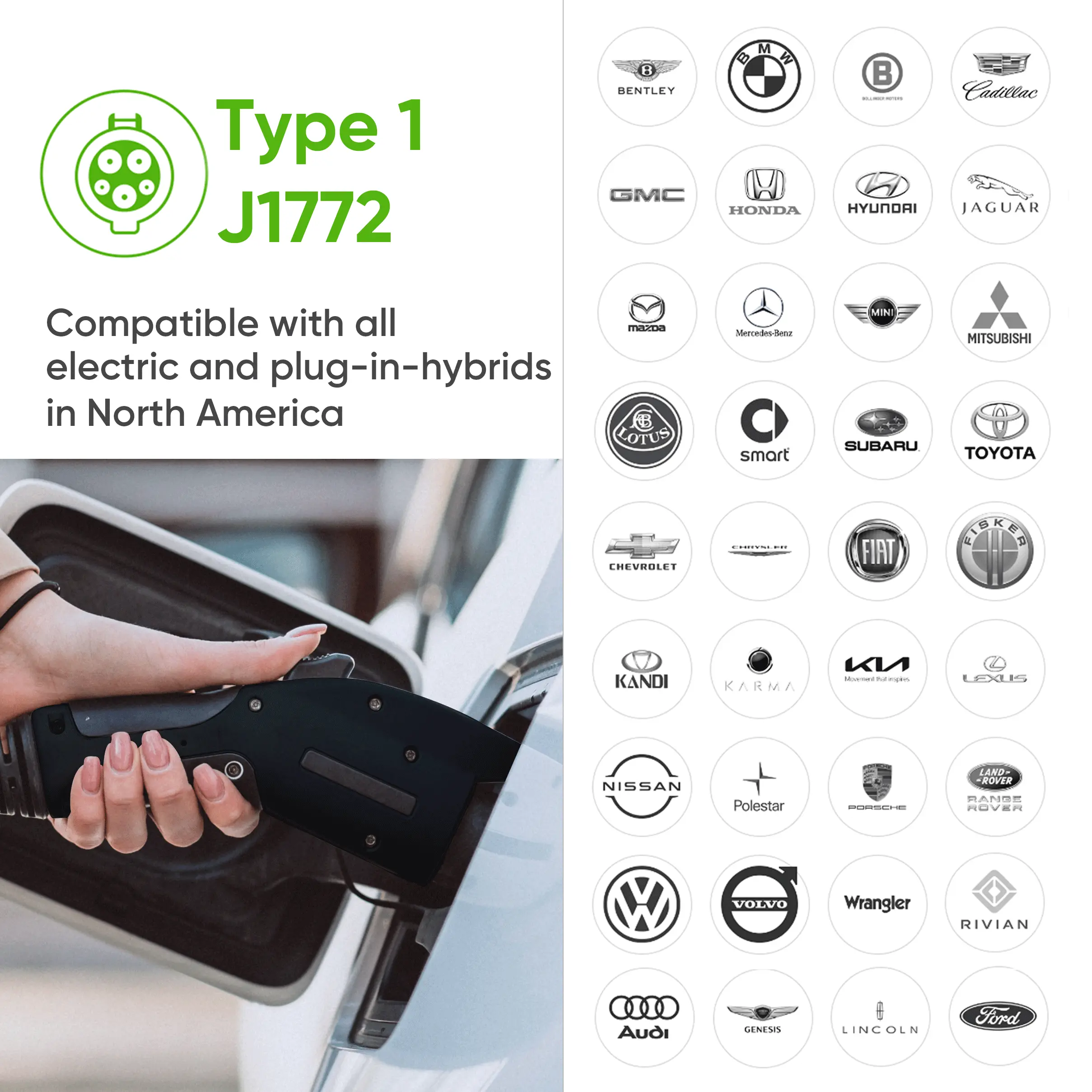
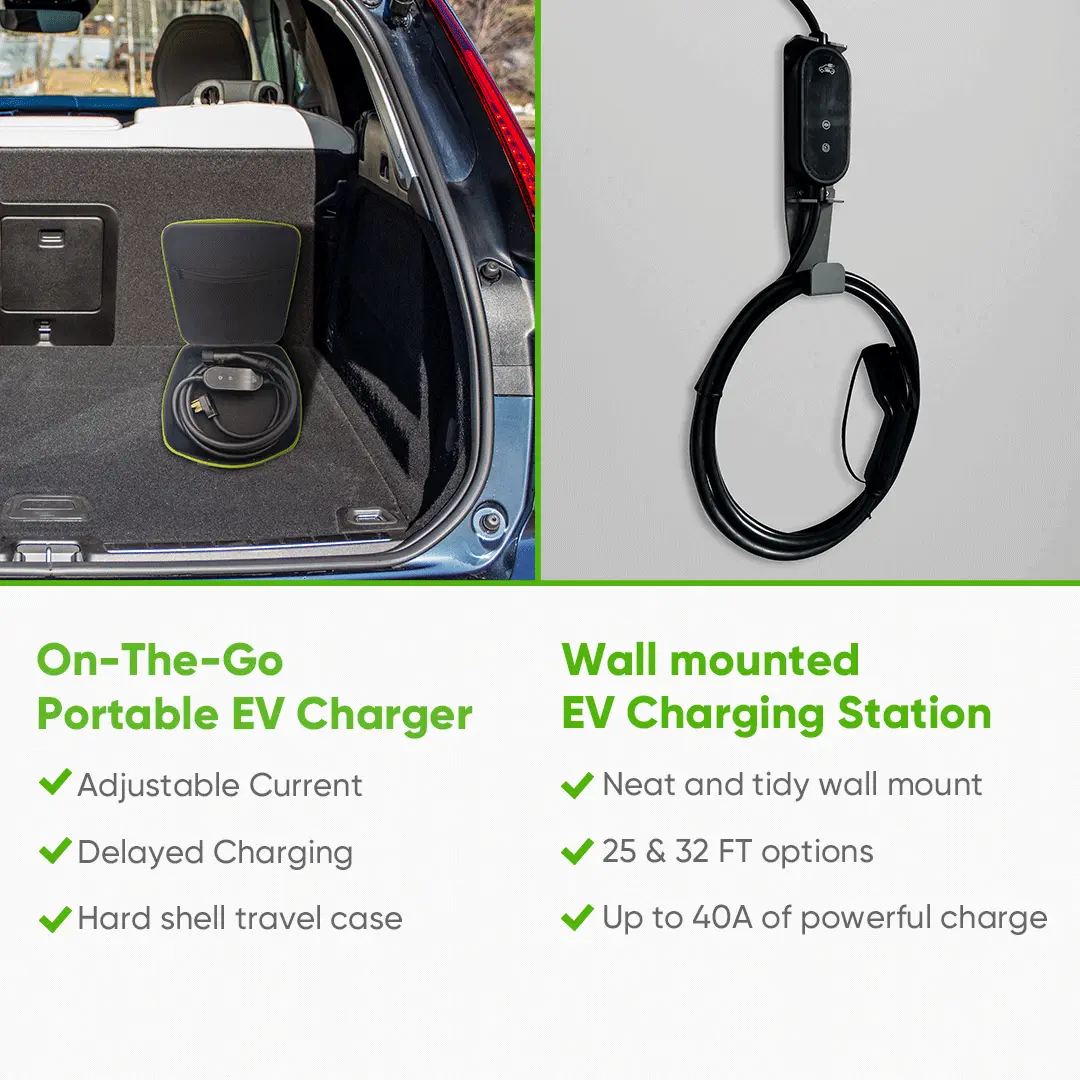
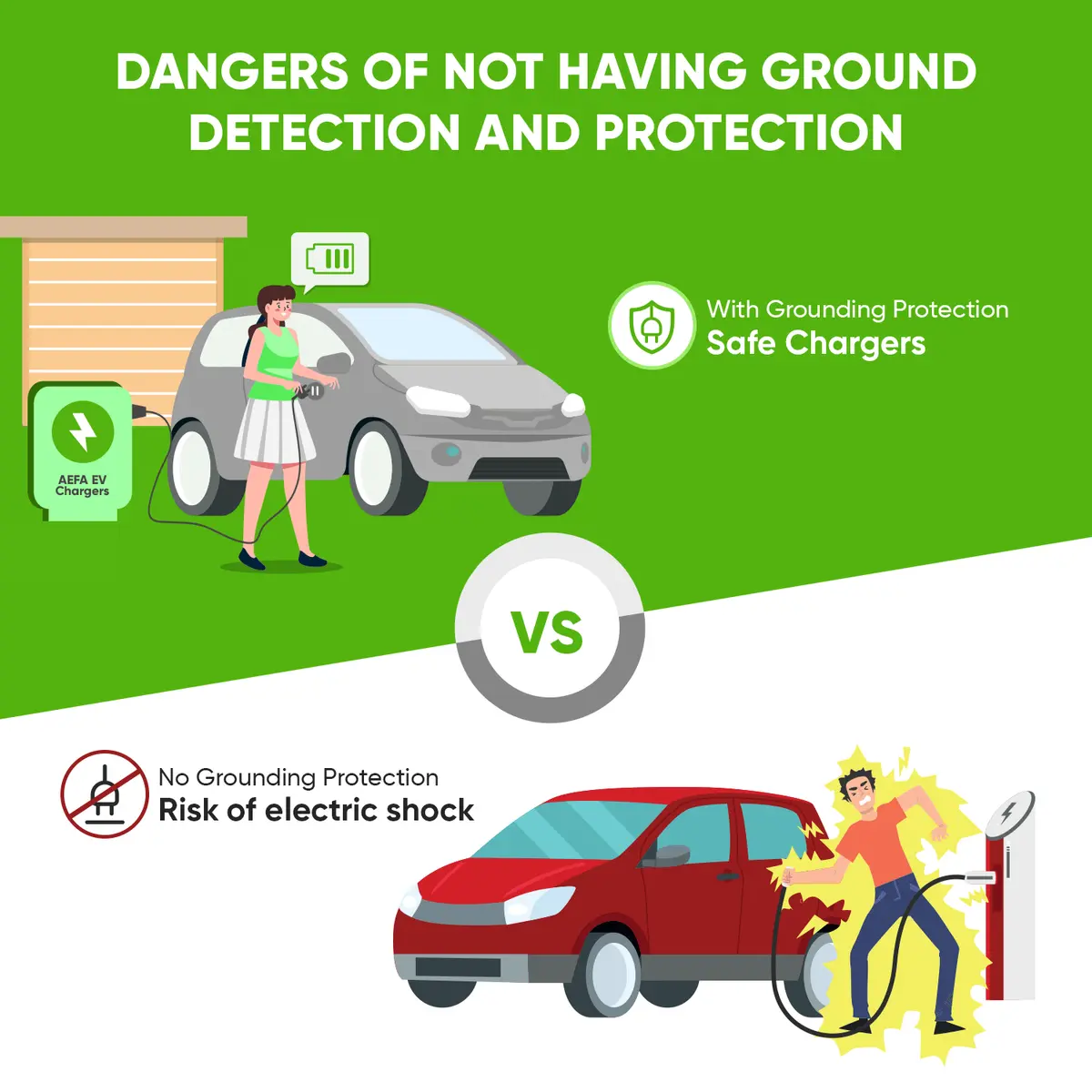
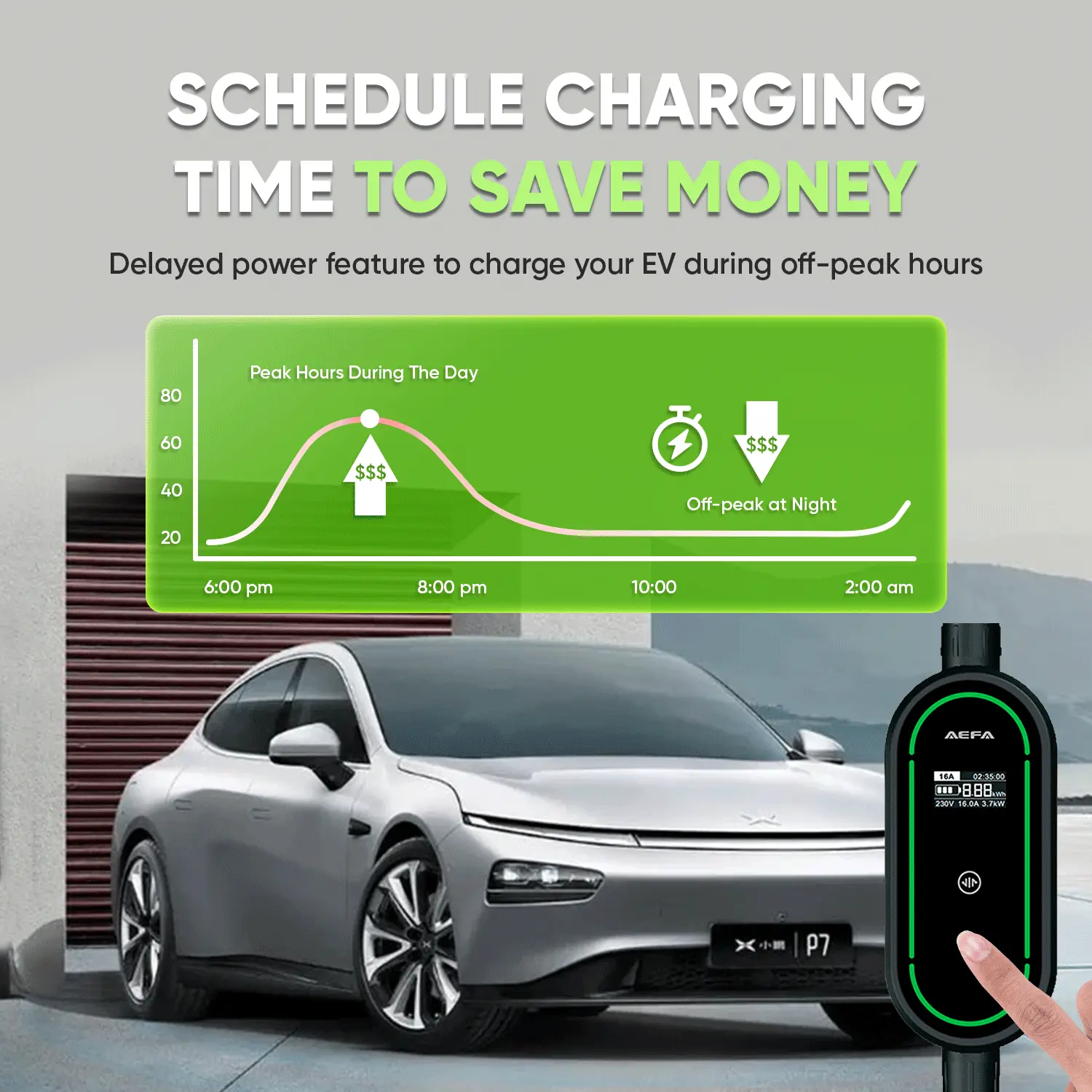
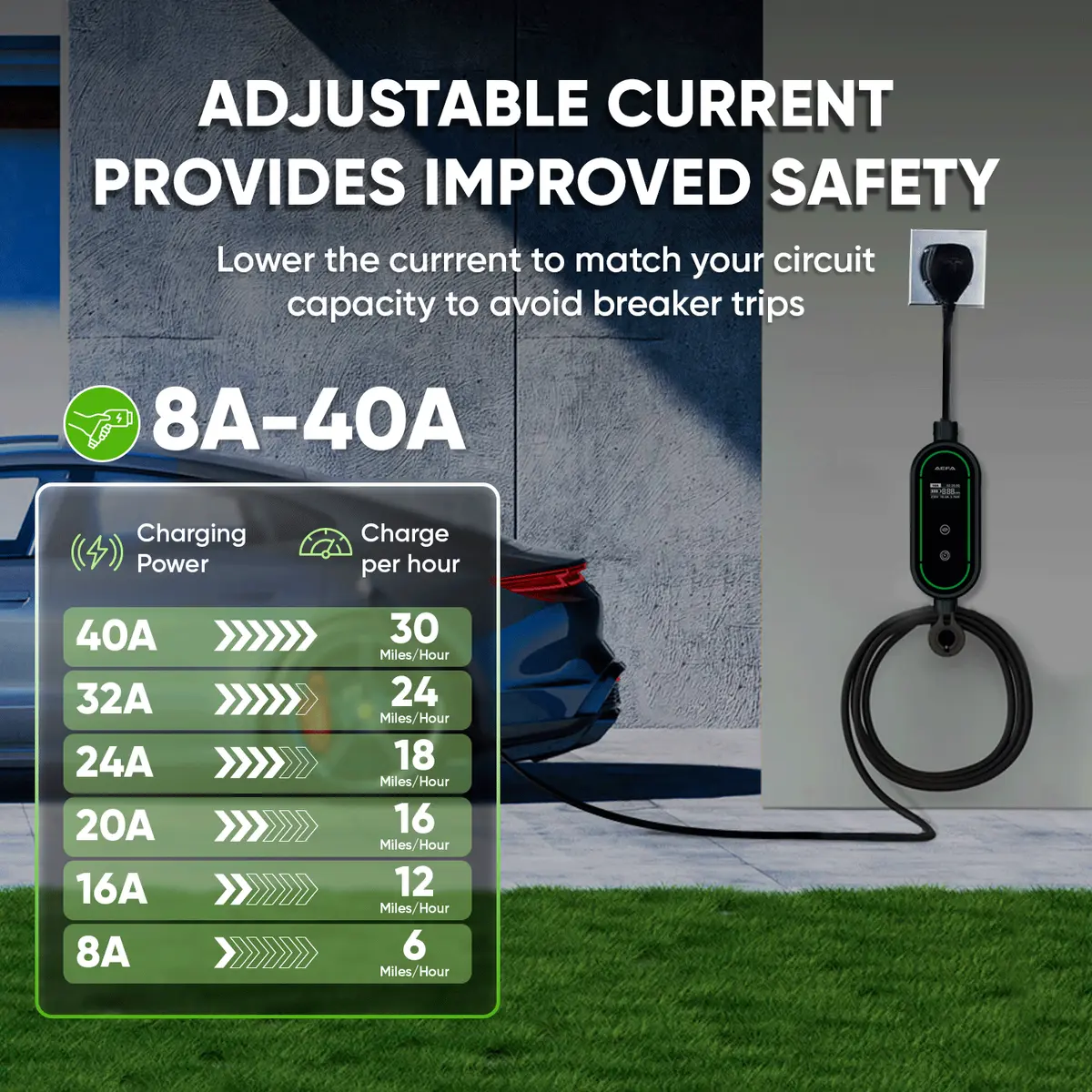
Starting at $120
This product is out of stock.
Order in the next hrs mins for delivery between 00 and 00!
Explore our collection of Honda Prologue
| 3 Pin Plugs | NEMA 5-15 Socket (120V), NEMA 6-30, NEMA 6-20 (240V) |
| 4 pin Plugs
Rating Rated Currents |
NEMA 14-50, NEMA 6-50, NEMA 14-30, NEMA L14-40 (240V)
Indoor/Outdoor rated for installation anywhere 12, 16, 20, 24, 32 and 40 amp |
| Weight | 14 pounds |
| Connector Type | Type 1 (SAE J1772) lockable. Fits all cars including Tesla with Tesla supplied adapter |
| Control Box Dimensions | 2 inches deep x 3.5 inches wide x 8 inches long |
| Cable Length | Convenient 25 feet or 32 feet (total charging length from wall socket 26 feet and 34 feet) |
| Protection | IP67 (international standard EN 60529) |
| Assembly
Temperature |
None
22 degrees Fahrenheit to 140 degrees Fahrenheit |
| Warranty | 12 months |
| Input voltage | 208-240 Volts alternating current (AC), single phase |
| Approvals | CE, CB & TUV Approved |
| Material | Premium TPU with thin and lightweight cable |
| Compatibility | Suitable for all U.S. and Canadian EVs (SAE J1772 inlet) |
| Integrated DC Leakage Protection | Type B residual current detection |
| Surge Protection | Over/under voltage, overload protection, short circuit protection, leakage current protection, over
temperature protection, lightning protection, active ground detection |
| Ground Monitoring | Yes |
| Residual Current Detection | Alternating current 30 milliamps (mA), Direct Current 6 milliamps (mA)
*Requirements of GB 14048.2 – 2008, GB 16916.1-2014 and GB 22794-2008 |
| Features | LED indicator lights to manage charging errors |
Honda launched its all-electric Honda Prologue in 2024. The Honda prologue competes with other mid-size vehicles such as the Kia EV6, Hyundai Ioniq 5 and VW ID 4.
Eligibility and results for electric vehicle incentives can vary based on individual circumstances such as location and personal financial details.
Commercial, fast charge DC chargers are an option for Honda Prologue EV charging but only in limited circumstances.
Many customers seek fast or more mobile EV charging solutions for the Honda Prologue. Commercial charging credits often leads to disappointment due to connectivity problems and integration issues. Level 1 provided EV chargers from manufacturers are too slow and in some cases are no longer provided.
Honda is focused heavily its clean air solutions with its hydrogen, hybrid and plug-in hybrid EV solutions. With the launch of the all-electric Honda Prologue and as dealerships still get up to speed, we receive a common set of questions around level 2 EV chargers and the Honda Prologue, which we consolidate into document about level 2 EV charging for the Honda Prologue. We put them into one document for Kia EV 9 owners that have questions about EV charging and EVSEs in general.
The Honda Prologue is fitted with a J1722 type connector – this is the descriptor and naming convention for the type of end connector that fits into the charging port of the vehicle. The charging rate i.e. how quickly power can be accepted by the car’s EV battery, is a rate of 11 kilowatts per hour (40-48 amps) on a 240-volt residential power outlet (typically NEMA 14-50 or NEMA 6-50, occasionally 14-30). The charging rate i.e. how many miles of distance per hour of charging, is determined by two factors, which are the amps (power provided by the EV charger) and the acceptance rate i.e. the speed that the car’s on board charger accepts charge from the ev charger. Different vehicles have different specifications.
The Honda Prologue is designed to impress with its robust performance and efficient charging capabilities. With a range of up to 300 miles on a single charge, this vehicle ensures you can go the distance without frequent stops. When it comes to recharging, the Honda Prologue can go from 0-80% in under 30 minutes using a DC Fast Charger, making it perfect for those on the go.
For home charging, the Honda Home Charging Station is a game-changer, providing up to 35.7 miles of range per hour. Additionally, the Honda Portable Charging Kit includes both a Level 2 charger with 7.6-kW of power and a Level 1 charger with 1.4-kW of power, offering flexibility and convenience for various charging needs.
Charging your Honda Prologue is straightforward, with different options to suit your lifestyle:
These options ensure that whether you’re at home or on the road, you can keep your Honda Prologue ready to go.
The Honda Prologue is equipped with versatile charging options to meet various needs. For DC Fast Charging, it uses a Combined Charging System (CCS) connector, ensuring rapid and efficient power delivery. For Level 2 charging, the vehicle supports the J1772 connector, a standard in the industry.
The Honda Home Charging Station is designed for optimal performance, featuring a 240-volt connection with a dedicated line to the electrical panel. The charging rate can be adjusted from 16A to 48A, accommodating electrical circuits ranging from 20A to 60A maximum. This flexibility ensures that your charging setup can be tailored to your specific requirements.
The Honda Home Charging Station, part number 08E72-PT9-100, offers a seamless and efficient home charging solution for your EV. With a 240-volt connection and a dedicated line to the electrical panel, it allows for rapid, no-hassle charging. The station can charge up to 35.7 miles of range per hour*, making it a cost-efficient option for daily use.
Key features include WiFi connectivity for tracking charging history and future upgrades, a 25ft charging cord for flexibility, and a 3-year warranty for peace of mind. Installation requires a certified electrician to hardwire the station on a dedicated circuit, ensuring safety and reliability.
Honda makes the transition to electric vehicles easier with a comprehensive charging package for the Prologue. This package includes a complimentary Level 2 Home Charging Station and a Level 1/Level 2 Portable Charging Kit, providing flexibility for various charging scenarios.
Additionally, the package offers a $500 credit towards installation through Honda Home Electrification (HHE) and an extra $100 credit for public charging stations. For those frequently on the go, a $750 credit for public charging stations is also available. These incentives are part of Honda’s commitment to making electric vehicles more accessible and convenient for everyone.
By offering these comprehensive charging solutions and packages, Honda ensures that your experience with the Honda Prologue is seamless, efficient, and enjoyable.
| Battery Size |
|---|
| 85 kWh |
| DC Commercial Charging compatibility |
|---|
| Yes |
| Cost per Charge |
|---|
| $20 (short range) |
| Level 2 charging i.e. residential EV charge |
|---|
| ~$17 |
The table we created shows charge time assuming an empty battery to full for a Honda Prologue. The below tabulation of charge times shows charge rates for different types of EV plug types. Level 2 EV charging for the Honda Prologue is by far the most popular.
| Plug Type |
|---|
| Level 1 – 5-15 (regular 3 pin) 120 volt |
| Level 2 – 14-30 (4 pin electric dryer type) 240 volt |
| Battery Size (kWh) |
|---|
| 85 kWh |
| 85 kWh |
| Cost per Charge |
|---|
| 1.9KW/hour @ 12 amps |
| 5.5 KW/hour @ 24 amps |
| EV Charge Time |
|---|
| ~42 hours |
| ~15 hours |
The above times are from an empty battery to a full battery. In practice, most EV owners will charge at a 20% or 30% full battery meaning the times above can be reduce significantly. For battery longevity, the charge of the battery should be between 20% to 80%. Many EV car software apps allow the driver to set these battery charging parameters.
The Honda Prologue be charged with a Type 1 SAE J1772 charger connector at home, work, or at a public charging point (level 2 commercial charging point only). The maximum alternating current (AC) charge rate is 11 kW/hour, which is 48 amps 208-240 volts. The Honda Prologue has onboard software that decides charge and will only take the maximum charge it is rated for. You can plug a level 2 40-amp, 9.6 kWh EV charger into your Honda Prologue and this is the recommended level 2 Honda Prologue EV charger.
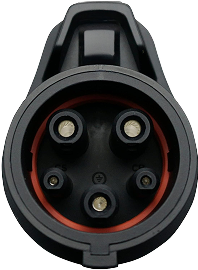
Most EV owners prefer the convenience, comfort, and speed of home EV charging. At home residential EV charging is the most popular since it is convenient, and costs are generally much cheaper at home at residentially priced electricity compared to commercial charging rates from third-party sellers of EV charging. Generally, commercial EV charging is problematic due to connectivity issues, compatibility issues and broken EV chargers. Many of our employees are EV owners and the majority verdict is that “at home” charging is more convenient, safer and easier.
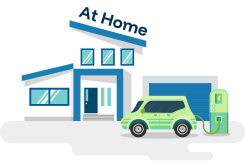

There is a widespread cost in charging, depending on location (residential or commercial), time of day tariffs and by State. Some States have significantly lower charging costs. The below table shows charging costs depending on location. The tables use U.S. current averages for residential electricity supply of 20 ¢/kWh. Below assumes 296-mile EV range of the Honda Prologue.
It’s important to note that eligibility and results for electric vehicle incentives can vary based on individual circumstances such as location and personal financial details.
Honda Prologue (level 1 and level 2)
| Place | |
|---|---|
| Home (empty to full)* | Commercial Chargers ** |
| Average Cost | |
|---|---|
| ~$17 | ~$35 |
| Cost/Mile | |
|---|---|
| $0.06¢ / mile | $0.12¢ / mile |
* Assumes 0.20 ¢/kWh average U.S. tariff. Residential tariffs vary by State.
** Assumes 0.40 ¢/kWh tariff for most Level 2 (AC) or Level 3 (DC) network EV chargers in 2024.
If you don’t find the answer you need, feel free to contact us.
Yes, both type of EV Charging are options
The fastest charger for a Honda Prologue is the NEMA 14-50 level 2 EV charger or hardwired EV charger. It is an EVSE or EV that runs between 208 and 240 volts.
The Honda Prologue uses a Type 1 J1772 EV charger, also known as CC1 in DC charging situations.
No. The level 1 EV charger takes around 2 days.
Yes, all EV chargers are interchangeable and compatible. There are many commercial and residential EV chargers designed to cover charging needs.
The most popular is our NEMA 14-50 level 2 charger. It is used universally and is also at camp grounds, as well as many new home developments.
Convenience, speed, flexibility and reduced charging costs will provide faster charge times but is not available in residential locations. Our high power level 2 EV chargers will achieve a full EV charge in around 8hours. Alternatively, we have a complete range of Honda chargers with all different EV plug types.
Yes, eligibility and results for electric vehicle incentives can vary based on factors such as location and personal financial details. It is advisable to seek precise information from incentive grantors or tax professionals.
Thanks for your interest! We’ll be notifying you once the product gets back in stock.